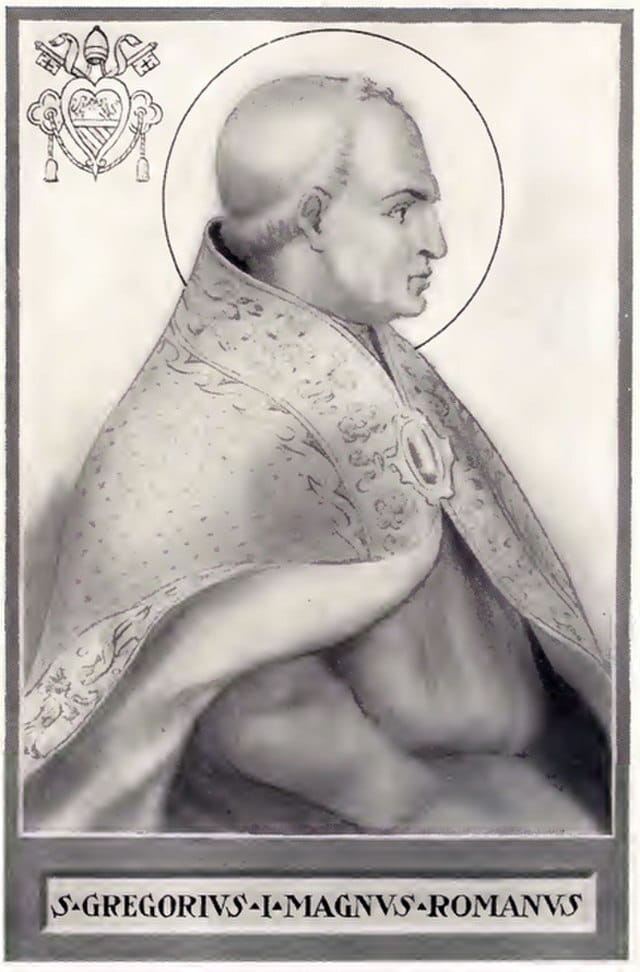
It's Saturday, October 7, 2023.
Today’s edition covers the LGBTQ conference hosted by Andy Stanley’s church, breaking news of violence in Israel, a seldom-discussed fact about the fruit of the Spirit, and much more.
First time reading? Subscribe here.
Of Christian Concern
“ANDY STANLEY IS EITHER NAIVE, OR HE’S CRAFTY”: A CHRISTIAN APOLOGIST REVIEWS THE UNCONDITIONAL CONFERENCE

Andy Stanley, senior pastor at North Point Community Church, has become an increasingly polarizing figure in mainstream evangelicalism in recent years. (Photo: North Point Publishing, CC BY 4.0)
North Point Community Church, the megachurch based in Alpharetta, GA pastored by famed minister Andy Stanley, hosted a conference last week “for parents of LGBTQ+ children and for ministry leaders looking to discover ways to support parents and LGBTQ+ children in their churches.” Christian apologist Alan Shlemon of Stand To Reason, who attended the two-day Unconditional Conference, debriefed his experience in an interview with professor Sean McDowell of Biola University.
In the interview, Shlemon describes the conference as intentionally avoiding the question of whether same-sex unions or transgender lifestyles are biblically permissible. Instead, it focused on the practical matters of coping when one’s child comes out as LGBTQ, and of knowing how to love and reach out to LGBTQ people.
Shlemon highlights two main concerns about the conference. First, Stanley and other speakers proposed a dichotomy, which Shlemon calls a false dichotomy, between a “traditional approach” and a “new approach” for how Christian parents respond to a child who comes out as homosexual or trans. The traditional approach, according to the conference, is essentially to blast the child with a Bible verse, call them reprobate, and drive them out of the house—either intentionally, or by virtue of the insensitive and unloving response. The new approach, then, is to lean into the relationship, listen to the child’s story, and point them to Jesus and His love, rather than lecture them.
Shlemon doesn’t concede that this so-called “traditional” approach is common among Christians, and says the conference stopped short of the approach he himself champions: leaning in, listening, and loving (as in the “new” approach), but then also discipling the child to obey Christ, which includes dying to oneself and following His clear commands about sexual activity.
Shlemon’s second concern is that although the conference claimed to be “a theologically neutral space,” virtually every speaker and recommended resource was LGBTQ-affirming. In fact, two of the speakers were gay men who are “married” to other men. Shlemon concludes from this: “Andy Stanley is either naive, or he’s crafty, but either way I think he’s dangerous…” He’s naive, Shlemon reasons, if he thinks the conference won’t have a pro-gay and pro-trans effect, but he’s crafty if he’s intentionally advancing pro-gay and pro-trans theology under a pretense of neutrality.
“I think,” Shlemon says, “if I wanted to quietly mainstream pro-gay theology and transgender ideology into the evangelical church, I would build this conference.”
In the full interview, McDowell and Shlemon dive into other difficult practical questions of how Christians should approach LGBTQ people. You can watch it here.
Also Noteworthy
BREAKING: Over 100 are dead and 900 injured after Hamas infiltrated Israel and began taking over Southern Israeli towns this morning. Prime Minister Benjamin Netanyahu says Israel is at war.
→ A federal appeals court upheld Kentucky’s and Tennessee’s bans on transgender interventions for minors, including gender surgeries, puberty blockers, and cross-sex hormones.
→ The country of Azerbaijan may be committing genocide against Armenians in Nagorno-Karabakh, a region whose population was predominantly Christian until last week. Thousands of Armenians have fled after “a 24-hour offensive” last month.
→ Artificial intelligence generated an image of what Jesus may have ‘really looked like’ based on the Shroud of Turin, an ancient relic thought by many to be the burial cloth of Christ.
→ 53% of Republicans consider former President Donald Trump to be a man of faith, compared to only 37% of evangelicals, according to a new poll by HarrisX for Deseret News. On Thursday, Christian YouTuber Jon McCray published a video evaluating available evidence for Trump’s real religious beliefs.
→ Americans are divided almost evenly on whether smaller or larger families are preferable, with 47% preferring one or two kids, and 45% preferring three or more, according to a recent Gallup survey. Catholics and people who regularly attend religious services are among those who prefer larger families.
→ Kat Von D, celebrity tattoo artist, has been baptized after a conversion from paganism. Christian journalist Ben Zeisloft makes some observations about what led to this recent change in her life.
Content Catch-Up
Recent, notable content by Christian creators.*
→ Leftist Mocks Christian Pastor: Pastor Jeff Durbin and activist John Barros, in the face of mocking and sneering, reason with abortion clinic escorts and women seeking abortions at Orlando Women’s Center. (Video)
→ Why Dennis Prager Is Wrong: Evangelist Ray Comfort responds to clips of conservative radio host and writer Dennis Prager, challenging his interpretation of the third and tenth commandments, and his concepts of goodness and salvation. (Video)
→ Pros and Cons of Ark Encounter: Pastor B.E. Winship evaluates his recent trip to Ark Encounter, the Kentucky theme park based on Noah’s ark, with high praise and words of caution. (Video)
*Not necessarily an endorsement
The Bible, Briefly
The Singular Fruit of the Spirit

Spoiler: the fruit of the the Spirit is not an orange. (Photo: Maria Victoria Portelles)
“But the fruit of the Spirit is love, joy, peace, patience, kindness, goodness, faithfulness, gentleness, self-control; against such things there is no law.” (Galatians 5:22-23)
Have you ever noticed that the Bible refers to the “fruit” of the Spirit, not the “fruits”? That can be easy to miss, since “fruit” in English can carry a plural sense. The careful reader will notice, however, that the verse says “the fruit of the Spirit is,” not “the fruit of the Spirit are.” Translating the word “fruit” as singular is intentional and correct, because the original Greek word (καρπός, that is, karpos) is singular.
“That may seem like a subtle detail,” author Robert Elmer writes, “but it’s worth thinking about. It signals that the list…should be taken as a group.” In other words, when we consider the nine attributes that the apostle Paul includes in the verse above, it’s not as though “love” is one type of fruit, “joy” is another, “peace” is yet another, etc. Rather, there is one tree, so to speak, producing one type of fruit, and that fruit is all of these attributes at once.
That makes sense when we consider that these attributes are attributes of God (they are “of the Spirit,” who is God). God’s nature is not divided into different parts—the loving part, the joyful part, the peaceful part, etc. God has no parts at all, because He is entirely unified and indivisible. This doctrine is called divine simplicity or divine unity. It means God is not composed of different characteristics that are somehow mashed together. Rather, His attributes are all ultimately one and the same—even those we tend to think of as opposing one another, such as love and wrath, or grace and justice.
So, the oneness of God’s nature may give us a clue as to why so many attributes can together be considered a single type of fruit—and how we, called to “be imitators of God” (Ephesians 5:1), must not pick and choose from them as from a buffet, but instead express them all at once.
If that sounds like a challenge, it’s even more challenging than that, because Paul’s list here is not meant to be exhaustive. As Augustine observes, when Paul says “against such things there is no law,” he clearly implies there are others of their kind. In Elmer’s words, it’s a “for instance” list.
To exhibit all nine of these attributes, plus however many are left unlisted, would be impossible for us to accomplish in our own power. But let us remember it’s not in our own power. It’s not our fruit. It’s the fruit of the Spirit, which He produces in and through us. We have only to be “led by” Him (Galatians 5:18).
Church History Tidbit
The Contributions of Gregory “the Great”

Illustration of Gregory I from The Lives and Times of the Popes by Chevalier Artaud de Montor, New York: The Catholic Publication Society of America, 1911, originally published 1842. (Public Domain)
The end of the Western Roman Empire brought the end of what is generally considered the “Ancient” period of history.* The subsequent “Medieval” period in Europe ran from about AD 500-1500.
One pivotal figure in Christendom during the early medieval years was Gregory I, also known as Gregory the Great (c. 540-604). Born into an elite and religious family, he began a career in government but after his father’s death devoted himself to religious life. This eventually led to his serving as Pope from 590 to his death in 604, after which he was proclaimed a saint. Gregory is credited with several major contributions:
Papal Authority: In his writings and actions, he defended the view that the Pope's authority is of divine origin, helping to lay the groundwork for the enduring concept of papal supremacy in Roman Catholicism.
Church Governance: He reformed and centralized the Church's administration by standardizing and regularizing various practices and procedures, and establishing rules for clerical conduct, perhaps most famously in his book Pastoral Rule.
Theological Orthodoxy: He played a crucial role in resolving theological disputes and maintaining unity within the Church. He is recognized as maintaining strict adherence to the conclusions of the first four ecumenical councils.
Missionary Efforts: Gregory's missionary endeavors, such as sending St. Augustine of Canterbury to convert the Anglo-Saxons, expanded the reach of the Roman Catholic Church and reinforced the Pope's status as a spiritual leader.
Liturgical Influence: Gregory's contributions to liturgical reforms, including the development of Gregorian Chant, significantly impacted worship practices, with continuing influence today.
From a Protestant perspective, Thomas J. Nettles offers a mixed assessment of this influential figure, calling him “a conservator of orthodoxy, an effective missiologist, and a zealous and clever churchman,” but noting a number of negative aspects. Gregory’s use of outrageous allegorical interpretations and acceptance of unbiblical practices and beliefs like relic veneration, the intercession of saints, masses for the dead, the concept of purgatory, and the merit of works, make for “a concoction alien to the biblical Gospel.” Such things, Nettles writes, “[foul] the sweetness of his instruction and his orthodoxy.”
*Green, William A. “Periodization in European and World History.” Journal of World History 3, no. 1 (1992): 41–42. http://www.jstor.org/stable/20078511.
Learned something new? Share it.

If you got value out of this briefing, please forward this email or share this link with a friend. If you have comments or suggestions, submit them here.
More Christians should know more. Spread the knowledge.




Your feedback is vital. The success of this project depends on hearing from you, the reader, with your thoughts and ideas about how this digest can best serve you. Please reply to this email to let us know how we’re doing, and what we can do better.
Why "18:15"? The name Project 18:15 is based on Proverbs 18:15: “An intelligent heart acquires knowledge, and the ear of the wise seeks knowledge.” The aim is for this weekly email—a Christian news briefing, a Bible study, and a Church history lesson rolled into one—to be one way you keep abreast of current events and acquire knowledge you might not acquire elsewhere.
Unless otherwise indicated, all Scripture quotations are from The ESV® Bible (The Holy Bible, English Standard Version®), copyright © 2001 by Crossway, a publishing ministry of Good News Publishers. Used by permission. All rights reserved.

Copyright (C) " target="_blank">unsubscribe
